 | TODAY IN SCIENCE HISTORY
NEWSLETTER - 24 NOVEMBER |
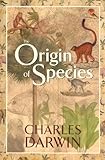 On 24 Nov 1859, Charles Darwin published his most famous work. Today's Science Store pick is: The Origin of Species: By Means of Natural Selection or the Preservation of Favoured Races in the Struggle for Life, by Charles Darwin. Read his groundbreaking ideas in his own words. There is nothing out-of-date in his pains-taking elucidation of his ideas. Without the modern knowledge of DNA or plate tectonics, he foresaw how the environment and crossbreeding would have an effect on natural selection. His priceless insight can be read inexpensively! It is available New from $14.44. Used from $0.43. (As of time of writing.). On 24 Nov 1859, Charles Darwin published his most famous work. Today's Science Store pick is: The Origin of Species: By Means of Natural Selection or the Preservation of Favoured Races in the Struggle for Life, by Charles Darwin. Read his groundbreaking ideas in his own words. There is nothing out-of-date in his pains-taking elucidation of his ideas. Without the modern knowledge of DNA or plate tectonics, he foresaw how the environment and crossbreeding would have an effect on natural selection. His priceless insight can be read inexpensively! It is available New from $14.44. Used from $0.43. (As of time of writing.). | | For picks from earlier newsletters, see the Today in Science History Science Store home page. | |
 | The progress of science has always been the result of a close interplay between our concepts of the universe and our observations on nature. The former can only evolve out of the latter and yet the latter is also conditioned greatly by the former. Thus in our exploration of nature, the interplay between our concepts and our observations may sometimes lead to totally unexpected aspects among already familiar phenomena. - Tsung-Dao Lee, Chinese-American physicist (born 24 Nov 1926).  |
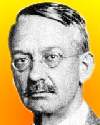 | Heredity is to-day the central problem of biology. This problem may be approached from many sides�that of the breeder, the experimenter, the statistician, the physiologist, the embryologist, the cytologist�but the mechanism of heredity can be studied best by the investigation of the germ cells and their development. - Edwin Grant Conklin, American biologist and embryologist (born 24 Nov 1863).  |
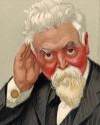 | But as no two (theoreticians) agree on this (skin friction) or any other subject, some not agreeing today with what they wrote a year ago, I think we might put down all their results, add them together, and then divide by the number of mathematicians, and thus find the average coefficient of error. (1908) - Sir Hiram Maxim, American-English inventor (died 24 Nov 1916).  |
| Before you look at today's web page, see if you can answer some of these questions about the events that happened on this day. Some of the names are very familiar. Others will likely stump you. Tickle your curiosity with these questions, then check your answers on today's web page. |
 | Simon van der Meer, born 24 Nov 1925, is a Dutch engineer and physicist who (with Italian physicist Carlo Rubbia) discovered two new subatomic particles by colliding protons and antiprotons. These particles transmit the weak nuclear force, one of four fundamental forces in nature.
 What are these two particles named? |
 | On 24 Nov 1926, Tsung-Dao Lee was born, a Chinese-born American physicist who shared the 1957 Nobel Prize for Physics for showing violations of a certain physical principle
 For which principle did Lee show a violation? |
 | Sir Hiram Maxim (1840-1916) was an American-born prolific inventor. His first patent was for a hair-curling iron (1866), followed by a device for generating illuminating gas and a locomotive headlight. He held hundreds of patents in the U.S. and Great Britain.
 For what invention, which carries his name, is he best known? |
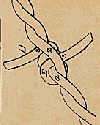 | On 24 Nov of a certain year, first U.S. patent for barbed wire was issued to Joseph F. Glidden, who manufactured it with barbs cut from sheet metal and inserted between two twisted wires. Glidden�s barbed wire opened the plains to large-scale farming, and closed the open range, bringing the era of the cowboy and the round-up to an end.
 In what decade was this patent issued? |
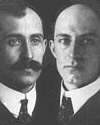 | On 24 Nov 1909, the Wright brothers formed a million-dollar corporation for the commercial manufacture of airplanes.
 What are the first names of the two Wright brothers? |
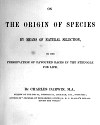 | On 24 Nov 1859, Charles Darwin's book, Origin of Species, was published in England to great acclaim. This book is unquestionably one of the most influential in the history of science
 What is the longer title of this book? |
When you have your answers ready to all the questions above, you'll find all the information to check them, and more, on the November 24 web page of Today in Science History. Or, try this link first for just the brief answers.
Fast answers for the previous newsletter for November 23: X-ray photographic techniques • Johannes Diederik van der Waals • the law did not correctly predict the positions of the later discoveries of Neptune or Pluto • Cuba • the decade containing the year 1889. |
 If you enjoy this newsletter, the website, or wish to offer encouragement or ideas, please send feedback by using your mail reader Reply button. If you enjoy this newsletter, the website, or wish to offer encouragement or ideas, please send feedback by using your mail reader Reply button.
Your click on a StumbleUpon, Google+ or Facebook social button on the site webpages is also a welcome sign of appreciation. Thank you for using them. |
To find citations for quotations go to the corresponding webpage by clicking on the “quotes” balloon icon. Sources for the thumbnails appear on today's webpage with the corresponding item.
� This newsletter is copyright 2013 by todayinsci.com. Please respect the Webmaster's wishes and do not put copies online of the Newsletter � or any Today in Science History webpage. (If you already have done so, please remove them. Thank you.) Offline use in education is encouraged such as a printout on a bulletin board, or projected for classroom viewing. Online, descriptive links to our pages are welcomed, as these will provide a reader with the most recent revisions, additions and/or corrections of a webpage. For any other copyright questions, please contact the Webmaster by using your mail reader Reply button. |
--
If you do not want to receive any more newsletters,
Unsubscribe To update your preferences and to unsubscribe visit
this link 






 What are these two particles named?
What are these two particles named? 
 For which principle did Lee show a violation?
For which principle did Lee show a violation? 
 For what invention, which carries his name, is he best known?
For what invention, which carries his name, is he best known? 
 In what decade was this patent issued?
In what decade was this patent issued? 
 What are the first names of the two Wright brothers?
What are the first names of the two Wright brothers? 
 What is the longer title of this book?
What is the longer title of this book?  If you enjoy this newsletter, the website, or wish to offer encouragement or ideas, please send feedback by using your mail reader Reply button.
If you enjoy this newsletter, the website, or wish to offer encouragement or ideas, please send feedback by using your mail reader Reply button. 

Δεν υπάρχουν σχόλια:
Δημοσίευση σχολίου